Sindh, so slowly, the sun seems faster
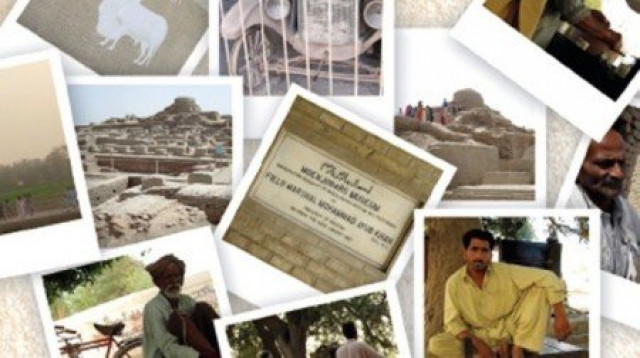
Sindh, so slowly, the sun seems faster
The air is so bleached that objects take on their original shape. The landscape is so vast it stretches into pre-history. All of this has the effect of sweeping me up with the stories of the ages. It is as if my vision is altered and fixes its sights towards the distant past.
My guide seems as old as the ruins themselves. Older even. He is beyond time. His eyes are pearls lodged in the soil in a primeval era and his face was carved when the earth was formed. I am seeing things. Perhaps it is the sun which at 10 am is already beating down on my head without mercy. What you do see at Moenjo Daro is lots of bricks and sandy grounds and mounds.
What you also see is whatever your imagination can conjure. The great sight is not what is there but the blanks you fill in for yourself. My guide tells me that only 10 per cent of the city has been excavated. There was a civilisation of perhaps 80,000 people here once.
They had drainage and a script and art. The great bath was the first of its kind in the ancient world. There was a college. Life was organised and relatively bountiful. This was five thousand years ago. If all this were in America they would have made ten movies about this place by now.
I love American movies but I’m glad we are not in America. In Moenjo Daro our individual imaginations are preserved. We can see it more clearly. 2. Let me set a country scene. A chai stop fifteen kilometres outside of Larkana. I sit on a wooden bench.
An old baba is brewing tea for me and my driver. The sun is winding down and we will call it a night in an hour. For now it spreads a soft glow on bicycles and children and casts haloes around the heads of tired men. If there is any lingering heat from the day it has become a part of me and I feel comfortably cool in this open area shaded by large overhanging trees.
From afar I hear noises. “What is that? Is that gunfire?” My driver says, “Yes, it is gunfire.” Some boys and young men gather in a line and look towards nothing but fields leading out beyond the eye’s limits. “Where are they looking?” “The village must be over there. Somewhere over there.” “What village?” “Where they are firing.” “Who is firing?” According to my driver, they are ‘dakus’ or dacoits.
This happens a lot.
They fire against each other in these villages. That’s how they settle things. With shoot-outs. I look out to where the commotion is happening and again see only greenery stretching out to infinity. The sounds of the gunshots arrive constantly like the ticking of a clock. I look around and the fading sun is still drenching the earth.
But my little Paradise has been Lost.
The baba calls out to me and I collect my chai. It is sweet and strong and for some reason the taste of cardamom stands out. I sit on the bench and look the other way as I sip my tea. How easily Paradise has again been Found. 3. You know it when you have entered a provincial city like Larkana.
It is the same in the provincial cities of Brazil, Nigeria, the Philippines, the Punjab. There is no instant delineation like there were in the metropolises of the old world with their grand arches between fortress walls.
In these times, in these places, the city gradually creeps up into existence. What you start to see is corrugated iron. Shopfronts selling auto-parts. Understimulated men sit in plastic chairs. Alleyways and people are bound together and bunched up.
Plastic bottles and poverty. It all leads to one conclusion. My driver says, “We have reached the beginning of Larkana.” “I know.”

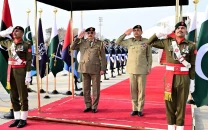
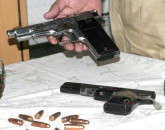


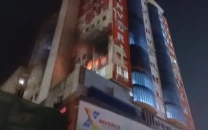
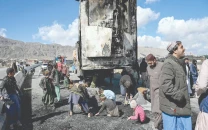












COMMENTS
Comments are moderated and generally will be posted if they are on-topic and not abusive.
For more information, please see our Comments FAQ